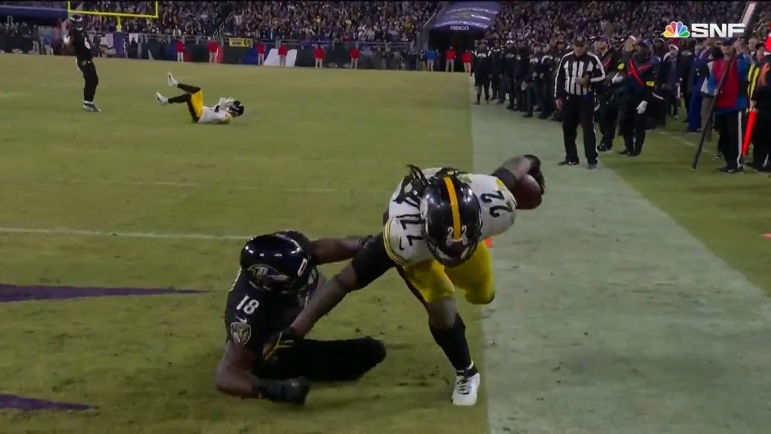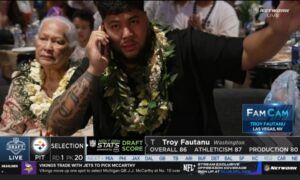We know Pittsburgh Steelers’ running back Najee Harris was one of many big-name running backs to attend Austin Ekeler’s Saturday night Zoom meeting to discuss the future of their position and market. What we don’t know is every detail of the conversation.
But Pro Football Talks’ Mike Florio, who broke the news about the Zoom call, has a couple of details on what was discussed. In a Sunday morning article, Florio says the idea of exaggerating injuries occurred as a way to “hold-in” during training camp was brought up but ultimately dismissed. Here’s what Florio has to say.
“As one source put it, the consensus was that this can’t work for running backs, since it feeds into the narrative that they’re prone to injury. (It also gives players lower on the depth chart a chance to prove that, dollar for dollar, they represent a better value than the “injured” players they are replacing.)”
And that’s the correct answer. Faking an injury isn’t a way to convince gun-shy front offices, worried about signing a long-term deal only to see the player get hurt (see Gurley, Todd) to change their minds. Players can hold-in while healthy anyway, it’s become a common practice, and replaced true holdouts since players will be fined $50,000 per day missed. Those not under contract, such as players who haven’t signed their franchise tag, can truly holdout without being fined because they aren’t signed to a deal. A player can sign when he chooses to sign if he chooses to sign, Le’Veon Bell famously skipping the entire 2018 year after being tagged.
As Florio also notes, missing extra time in camp could just give backups more chances to show they can play, hurting the starter’s leverage.
Florio says the conversation turned to wanting to speak with agents. The importance of setting realistic expectations and signing contracts without “fluff,” essentially backloaded types of deals that look good on paper but money players won’t realistically see. For running backs especially, they don’t tend to play out their deals.
“The next step, we’re told, will be for the agents of this coalition of concerned running backs to get on a call of their own, in the hopes of coming up with better lines of communication and strategy for running backs who are or will be seeking new contracts.”
While these talks still seem to be in the beginning stages, it’s difficult to see how agents can truly help. Sure, setting more realistic expectations are well and good, agents should be doing that for all their clients, but it’s not going to get running backs paid more money. And any idea of colluding together doesn’t seem to have an outcome. If teams don’t want to pay, they won’t pay, and there will be plenty of cheap backups waiting in the wings. In Pittsburgh, UDFA Jaylen Warren is already shining bright and ate in Najee Harris’ workload last season.
As Florio notes, there aren’t many options for running backs. Their fight may be admirable but their choices are limited. With the CBA running through 2030, at which point almost all these players will be out of the league, all running backs can do is be vocal about wanting more money. They don’t have much in the way of leverage.
Their best shot is to find a time machine, go back to 2020, and push for the CBA to be re-written in a way more favorable to the position and players at large. Barring that miracle, there’s no other moves left on the board.








